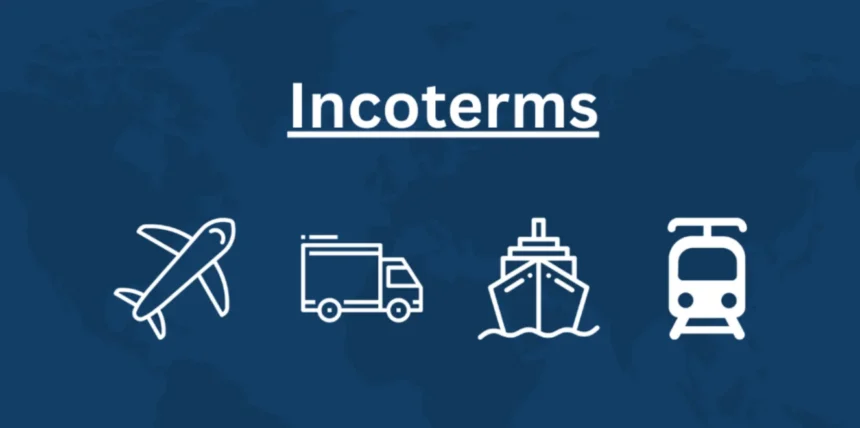When planning for a global shipment, established importers and exporters must apparently find out how their products will travel from point A to B, who will reimburse for which parts of the journey, and who is liable if goods are lost or destroyed on the way. This is accomplished through Incoterms (international commercial terms), a uniform set of regulations that help ease trade between different countries.
In this post, we will discuss some important things about international commercial terms that you must know as a global trader.
An Overview of Incoterms
Incoterms is a short form of the phrase international commercial terms. It is trademarked by the International Chamber of Commerce (ICC). They aim to help communication and lessen confusion when handling global trade.
This is something that defines a transaction between two parties, generally, the party shipping goods and the party receiving them. These terminologies fix the different parts of trade and can designate which party is liable for the different tasks, charges and procedures. They also include all portions of the import-export and transportation methods, from the products leaving the point of manufacturing to them being received at the importing port. They include all the ways in which the various parties share liabilities.
The ICC has announced international commercial terms rules that have come into implementation from the 1st of January 2020. These rules play an important role in the global business. While they may look complex, it is essential that buyers and sellers clearly know how they function and their responsibilities along the supply chain. (1)
The Importance of Incoterms
Everybody in your company who plays a role in your global transactions must be familiar with the terminologies. If you are in export, then all who are part of your company must know that it involves your worldwide sales force. On the other hand, if you are an importer, then that signifies your buying agents and purchasers. Whether you are a buyer or seller, that also involves your accounting section, logistics and transportation divisions, senior administrators, and others.
When a seller and a buyer settle to use a specific incoterm, each receives the interrelated obligations as evidently set forth and discussed under that specific incoterm. This decreases the risk of legal complexities by offering buyers and sellers one home base from which to attribute trade practices.
By properly using these terminologies, you will be capable of partnering more harmoniously, transporting and delivering your products more effortlessly and getting paid faster.
What Areas Do International Commercial Terms Cover?
There are four key areas of liability that these terminologies cover:
1. Delivery Phase
This is where the buyer and seller make a contract for the information of the shipment’s final delivery. And when the items change hands, the seller’s liability ends.
2. Transportation Phase
Incoterms fix which party is accountable for transportation charges, how these charges are shared, or whether each party takes obligation for diverse phases of shipment.
3. Documentation and Formalities
These terminologies fix which parties are liable for handling all export, customs, and import documents, formalities, and duty reimbursements.
4. Insurance Coverage
These terminologies exhibit which party is accountable for providing insurance coverage throughout transportation.
Benefits of Incoterms in Export Business
1. Transparency and Consistency
One of the main advantages of using Incoterms is that they offer transparency and consistency in international business transactions. They set clear regulations and liabilities for buyers and sellers, which assist in reducing confusion and misconceptions. By using standardised terminologies, sellers and buyers can make sure they are on the same page for the delivery of products, payment terms, and different vital information.
2. Decreased Risk of Conflicts
One more benefit of employing international commercial terms is that they can help lessen the risk of conflicts between buyers and sellers. By distinctly framing the responsibilities of each party, these terminologies can stop misunderstandings that could result in disputes over problems like delivery times, payment terms, and accountability for loss or damage of products. This can save both parties money, time, and the stress of handling disputes.
3. Effortless Logistics
Help ease logistics in global business transactions. Buyers and sellers can ignore setbacks and confusion in the shipping procedure by setting clear rules for the delivery of products, involving who is liable for shipment, loading and unloading, and insurance coverage. This can help in making sure that products reach their place on time and in the best condition.
4. Cost Savings
Using these terminologies can also result in cost savings for both sellers and buyers. By clearly discussing the responsibilities of each party, they can assist buyers and sellers in negotiating more profitable terms, for example, less insurance premiums or more agreeable payment terms. This can result in reducing overall costs for both parties.
5. Improved Effectiveness by Standardising
Trade terms and incoterms can increase effectiveness in global trade transactions. Buyers and sellers can fast and easily agree on conditions through standardised words, stepping up the negotiation procedure and leading to quicker transactions. This can assist both parties in capitalising on possibilities and replying quickly to modifications in the market.
6. Global Approval
International commercial terms are identified and accepted all over the world. This shows that buyers and sellers can employ them in international trade transactions regarding the location. This helps remove language obstacles and cultural variations that challenge negotiating situations.
7. Better Risk Management
Finally, employing incoterms can help sellers and buyers effectively manage the risks of global trade transactions. By clearly describing the liabilities of each party, these terminologies can help both parties predict prospective risks and take steps to alleviate them. This involves getting insurance, creating emergency plans, and ensuring all required documentation is in place.
Final Words
Shipments can face issues without correct incoterms; thus, it is really essential to consider carefully which one is relevant. Failing to understand the meaning of incoterm leads to trouble all through the supply chain. Whether you are a competent exporter or new to global trade, using these terminologies can assist you in navigating the complicated world of international business positively.
If you are a highly developed brand searching for fulfilment or shipping assistance, Amazon Global Selling is here to help. Registering for their e-commerce export program will help you take your business to a global level with a reach of millions of customers worldwide.










 /home/u448362301/domains/theexpotab.com/public_html/wp-content/themes/foxiz/templates/popup.php on line 167
/home/u448362301/domains/theexpotab.com/public_html/wp-content/themes/foxiz/templates/popup.php on line 167